As a proud owner of what I thought was a regular rabbit, I was surprised to learn that my little furry friend was a dwarf rabbit. I had expected it to grow bigger, but it remained small and cute. If you’re not familiar with dwarf rabbits, don’t worry – you’re not alone!
In simple terms, dwarf rabbits are smaller versions of their regular rabbit counterparts. They are a popular choice as pets due to their compact size, adorable appearance, and playful personalities. Unlike larger rabbit breeds, dwarf rabbits are better suited to living indoors and are often recommended for families with children.
General Dwarf Rabbit Identification
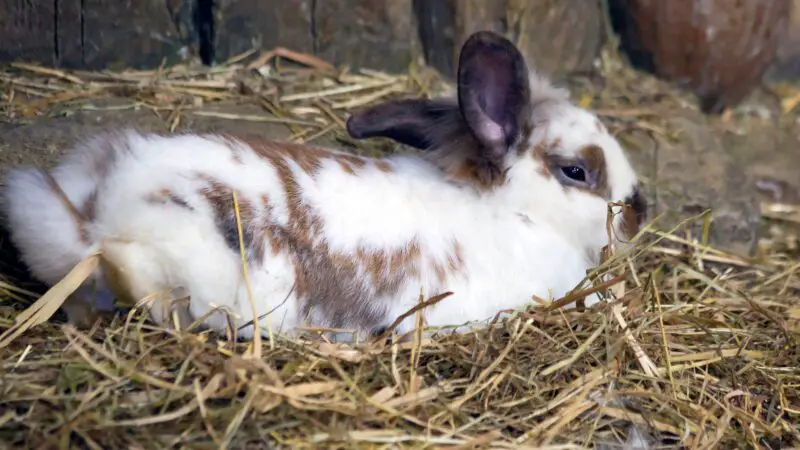
What Do Dwarf Rabbits Look Like?
Dwarf rabbits are small, and compact and come in a variety of breeds, each with their unique physical characteristics. On average, dwarf rabbits range in size from 8-12 inches in length and weigh between 2-4 pounds, which is similar in size to a guinea pig. However, some breeds can be larger or smaller.
How Long Does a Dwarf Rabbit Live?
Dwarf rabbits have a longer lifespan than larger breeds of rabbits, living anywhere from 8-12 years. This is equivalent to about 56-84 years in dog years! Proper nutrition and care can contribute to a healthy and long life, while poor nutrition can lead to a shorter lifespan.
What Can a Dwarf Rabbit Eat?
Dwarf rabbits are herbivores and thrive on a diet of hay, fresh vegetables, and high-quality pellets. They should not be fed foods that are high in sugar or fat, such as chocolate, which is toxic to rabbits. Oranges and kiwis are safe to feed in small amounts, but the high acid content can irritate their stomachs.
How Big Do Dwarf Rabbits Grow?
The maximum size of a dwarf rabbit is around 12 inches in length, which is similar in size to a small dog. However, some breeds can grow larger or smaller. It’s important to note that dwarf rabbits reach their full size at around 6-8 months of age unlike dogs, which can take up to a year to reach their full size.
Are Dwarf Rabbits a Heavy Breed?
It depends on how you look at it! Dwarf rabbits are small in size so compared to larger rabbit breeds, they could be considered light. However, if you compare their weight to their size, they are quite dense and heavy. It’s all about perspective!
What Color Are Dwarf Rabbits?
Dwarf rabbits come in a variety of colors, including white, black, brown, and gray. The most popular color is white, which is often associated with purity and innocence. However, there are many other beautiful colors to choose from and each breed has its unique coat pattern and color.
What Are the Distinct Characteristics of a Dwarf Rabbit?
Dwarf rabbits have many distinct characteristics that set them apart from other small animals. One of their most unique features is their long, floppy ears, which are both cute and functional – they help the rabbit regulate its body temperature!
Additionally, dwarf rabbits have soft, dense fur coats that can come in a wide range of colors and patterns. Unlike other small pets, such as hamsters or gerbils, dwarf rabbits are also highly social and can form strong bonds with their human caregivers. Just don’t let them know they’re not cats!
Where Do Dwarf Rabbits Originally Come From?
While we can’t confirm or deny the possibility that dwarf rabbits might be aliens, we do know that they were first bred in Europe in the 19th century. These adorable little rabbits were originally bred as show animals but quickly became popular as pets due to their small size and lovable personalities.
Today, there are many different breeds of dwarf rabbits, each with its unique characteristics and origins. Whether you’re looking for a Holland Lop, a Netherland Dwarf, or a Mini Rex, there’s a dwarf rabbit out there that’s perfect for you!
What Are the Different Dwarf Rabbit Breeds?
There are many different breeds of dwarf rabbits, each with its unique characteristics and origins. Here are some of the most popular dwarf rabbit breeds:
Mini Satin Rabbit
Originating from the United States, the Mini Satin Rabbit is a small breed of rabbit that weighs between 3-4 pounds and is typically 8-10 inches in length. The most common color for this breed is black, but they can also come in blue, chocolate, and red.
Mini Satin Rabbits make excellent pets due to their friendly personalities, and they are also very easy to care for. One unique feature of this breed is its soft, shiny coat, which is said to resemble satin.
Jersey Wooly Rabbit
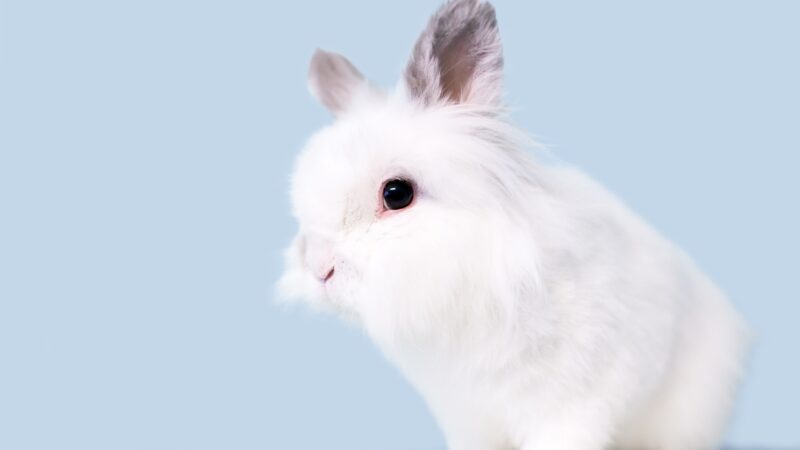
The Jersey Wooly Rabbit was first bred in New Jersey in the 1970s. This breed is small, weighing between 2-4 pounds, and is approximately 7-10 inches in length.
The most common color for this breed is agouti, but they can also come in a variety of other colors. Jersey Wooly Rabbits make excellent pets due to their gentle nature and low-maintenance grooming requirements. One unique feature of this breed is its thick, wooly coat, which requires regular grooming to prevent matting.
Lionhead Rabbit
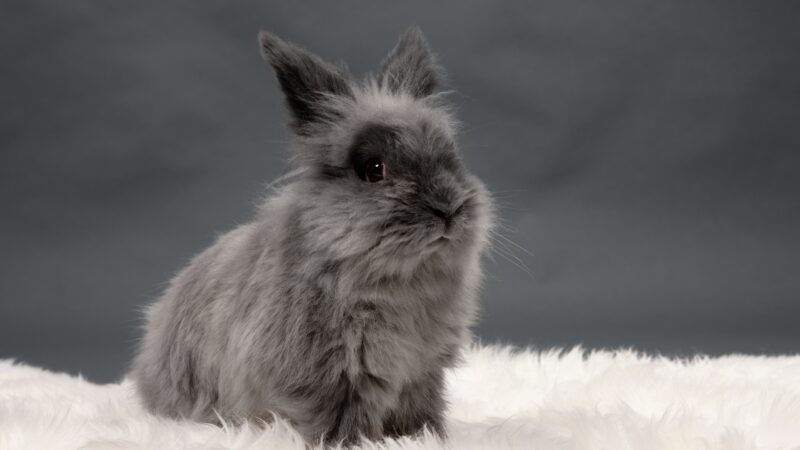
Originating from Belgium, the Lionhead Rabbit is a small breed that weighs between 2.5-4 pounds and is approximately 7-10 inches in length. The most common color for this breed is white, but they can also come in black, blue, and other colors.
Lionhead Rabbits make excellent pets due to their playful personalities and unique appearance. One unique feature of this breed is its mane of long, fluffy fur around its head, which gives it a lion-like appearance.
Mini Lop Rabbit
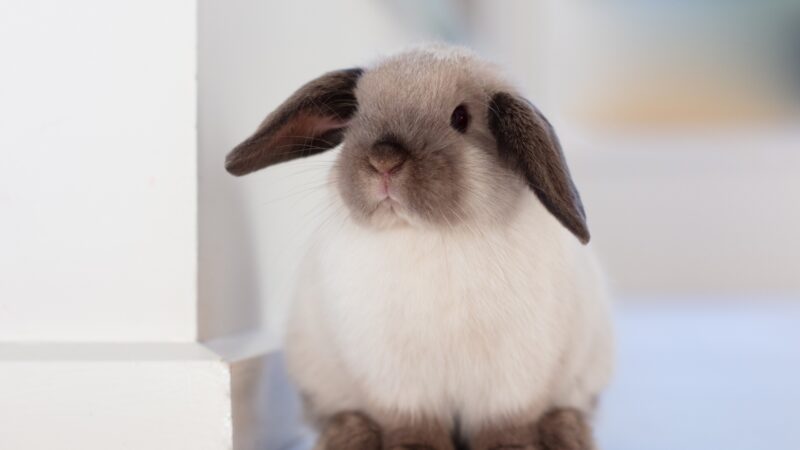
The Mini Lop Rabbit was first bred in Germany in the 1970s. This breed is small, weighing between 4-6 pounds, and is approximately 10-12 inches in length. The most common color for this breed is brown, but they can also come in a variety of other colors.
Mini Lop Rabbits make excellent pets due to their friendly personalities and easy-going nature. One unique feature of this breed is its long, floppy ears, which give it a cute and endearing appearance.
Dutch Dwarf Rabbit
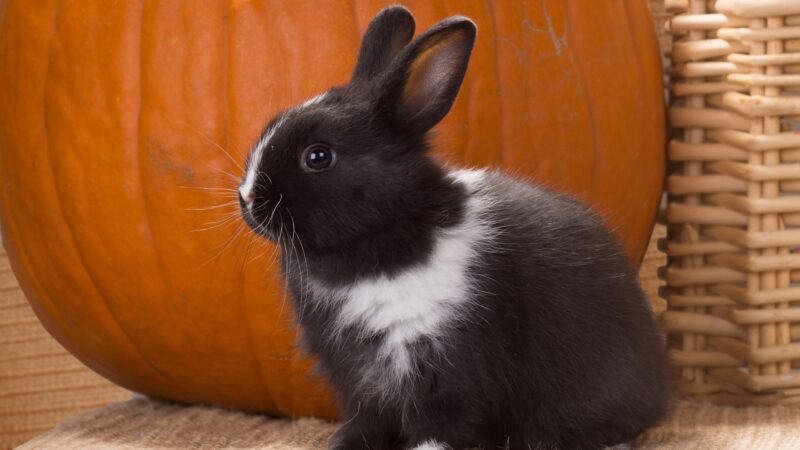
The Dutch Dwarf Rabbit is a small breed that originated in the Netherlands. This breed weighs between 2-3.5 pounds and is approximately 7-8 inches in length. The most common color for this breed is black and white, but they can also come in blue and other colors.
Dutch Dwarf Rabbits make excellent pets due to their playful personalities and social nature. One unique feature of this breed is its distinctive markings, with a white blaze on its face and a white collar around its neck.
American Fuzzy Lop Rabbit
Originating in the United States, the American Fuzzy Lop Rabbit is a small breed that weighs between 3-4 pounds and is approximately 8-11 inches in length. The most common color for this breed is gray, but they can also come in white, black, and other colors.
American Fuzzy Lop Rabbits make great pets due to their friendly and curious personalities. One unique feature of this breed is its dense, wooly coat, which requires regular grooming to prevent matting.
Dwarf Hotot
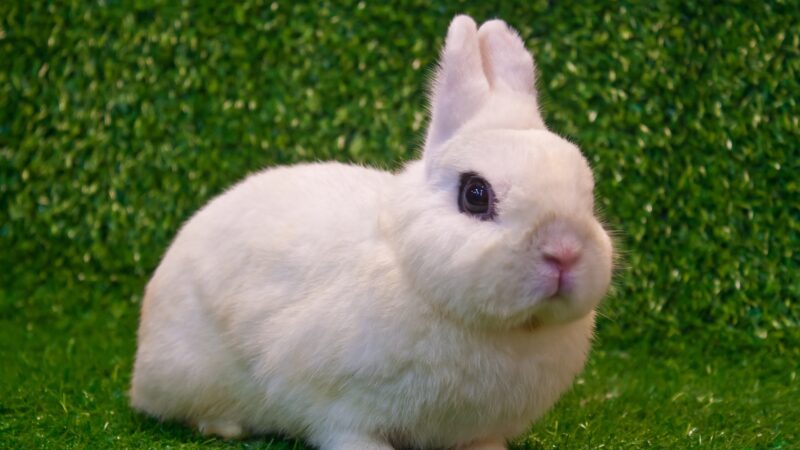
The Dwarf Hotot Rabbit is a small breed that originated in Germany. This breed weighs between 2-3 pounds and is approximately 7-8 inches in length. The most common color for this breed is white, with distinctive black rings around their eyes.
Dwarf Hotot Rabbits make excellent pets due to their calm and gentle nature. One unique feature of this breed is its striking appearance, with its dark-rimmed eyes and white fur.
Miniature Cashmere Lop Rabbit
The Miniature Cashmere Lop Rabbit is a small breed that originated in the United Kingdom. This breed weighs between 3-4 pounds and is approximately 8-11 inches in length. The most common color for this breed is brown, but they can also come in black, gray, and other colors.
Miniature Cashmere Lop Rabbits make great pets due to their friendly and inquisitive personalities. One unique feature of this breed is its long, curly fur, which gives it a soft and fluffy appearance.
Britannia Petite Rabbit
The Britannia Petite Rabbit is a small breed that originated in the United Kingdom. This breed weighs between 1-2 pounds and is approximately 6-8 inches in length. The most common color for this breed is black, but they can also come in chocolate, lilac, and other colors.
Britannia Petite Rabbits make great pets due to their energetic and playful personalities. One unique feature of this breed is its compact size, which makes them an ideal choice for small living spaces.
Columbia Basin Pygmy Rabbit
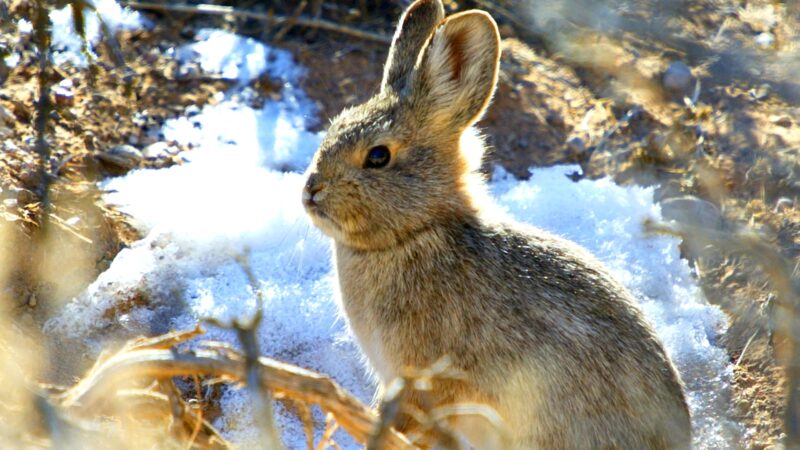
The Columbia Basin Pygmy Rabbit is a rare and endangered breed of rabbit that is native to the western United States. This breed is the smallest rabbit in North America, weighing in at just 1 pound and measuring 9-11 inches in length.
The most common color for this breed is brown, but they can also come in gray and white. Due to their endangered status, Columbia Basin Pygmy Rabbits are not suitable as pets.
Mini English Angora Rabbit
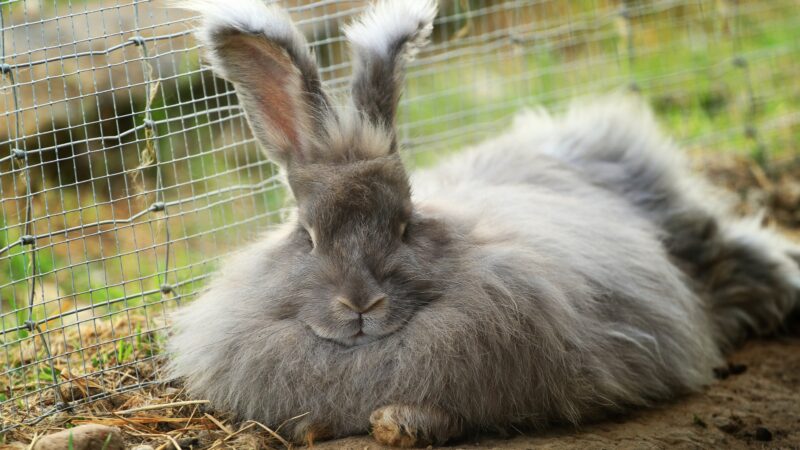
The Mini English Angora Rabbit is a small breed that originated in England. This breed weighs between 3-5 pounds and is approximately 8-10 inches in length. The most common color for this breed is white, but they can also come in black, blue, and other colors.
Mini English Angora Rabbits make great pets due to their friendly and outgoing personalities. One unique feature of this breed is its thick, soft fur, which requires regular grooming to prevent matting.
Holland Lop
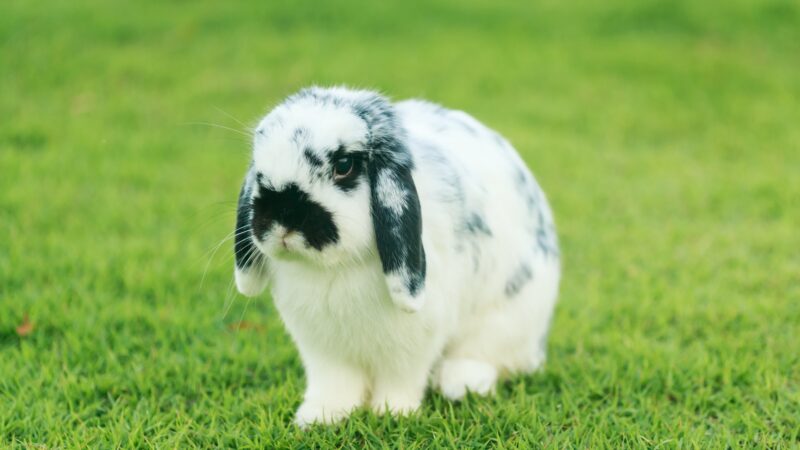
The Holland Lop Rabbit is a small breed that originated in the Netherlands. This breed weighs between 2-4 pounds and is approximately 8-10 inches in length. The most common color for this breed is brown, but they can also come in a wide range of other colors.
Holland Lop Rabbits make great pets due to their playful and affectionate personalities. One unique feature of this breed is its adorable, floppy ears, which give it a cute and endearing appearance. Holland Lop Rabbits are the most popular dwarf rabbit breed in the United States.
Why Should You Buy a Dwarf Rabbit?
Before deciding to buy a dwarf rabbit, it’s important to carefully consider whether you are ready and able to provide for the needs of a pet rabbit. If you have any doubts or reservations, it’s best to hold off on making a purchase. Here are three reasons why you might want to think twice before buying a dwarf rabbit:
- Commitment – Dwarf rabbits can live for up to 10 years, which is a significant commitment. Before buying a rabbit, make sure you are prepared to provide for its needs over the long term.
- Care – Dwarf rabbits require daily care, including feeding, cleaning, and exercise. If you are not able to commit to providing this level of care, a rabbit may not be the right pet for you.
- Cost – Dwarf rabbits can be expensive to care for, with costs associated with food, veterinary care, and housing. If you are not able to afford these costs, a rabbit may not be the right pet for you.
With that said, there are many great reasons why you might want to consider buying a dwarf rabbit:
- Affectionate – Dwarf rabbits are known for being affectionate and social animals. They thrive on human interaction and can form strong bonds with their owners.
- Low-Maintenance – While they do require daily care, dwarf rabbits are generally considered low-maintenance pets. They are quiet, and clean and do not require regular grooming like dogs or cats.
- Educational – Dwarf rabbits can be great pets for children, as they teach responsibility, empathy, and other valuable life skills. They can also provide a unique educational opportunity for children to learn about animal behavior and care.
If you are prepared to provide the necessary care and attention that a dwarf rabbit requires, and you are looking for an affectionate, low-maintenance, and educational pet, then a dwarf rabbit may be the perfect pet for you.
How Do You Take Care of a Dwarf Rabbit?
Taking care of a dwarf rabbit requires some effort, but with the right knowledge and preparation, it can be a rewarding experience. Here are some important aspects of caring for a dwarf rabbit:
Dwarf Rabbit Health
Like any animal, dwarf rabbits can be prone to certain health issues. Some of the most common health issues that dwarf rabbits face include respiratory infections, digestive problems, and dental issues. It’s important to keep an eye out for any changes in your rabbit’s behavior or health and to seek veterinary care if you notice any concerning symptoms.
When compared to having a kid, taking care of a dwarf rabbit can be less expensive and less time-consuming, but it still requires a significant amount of responsibility and care.
Dwarf Rabbit Dental Problems
Dwarf rabbits are prone to dental problems, as their teeth grow continuously throughout their lives. Common dental issues that dwarf rabbits may face include overgrown teeth, malocclusion, and tooth abscesses.
To prevent dental problems, it’s important to provide your rabbit with plenty of hay and other fibrous foods, which help wear down their teeth naturally.
Finding a veterinarian who specializes in rabbit dentistry can be a challenge and may be more expensive than a regular dentist due to the specialized knowledge and equipment required.
What Do I Need for a Dwarf Bunny?
If you’re planning to adopt a dwarf rabbit, here are the top five things you’ll need:
- Housing – You’ll need a cage or hutch that is large enough for your rabbit to move around comfortably. A good-sized cage for a dwarf rabbit should be at least 24″x24″x18″, and should include a hideaway area for your rabbit to retreat to when it wants some privacy. Prices for rabbit cages can range from $50 to $200, depending on the size and quality.
- Bedding – Your rabbit will need a comfortable place to sleep, and bedding is important for keeping their cage clean and hygienic. Options for bedding include paper-based products, such as CareFresh, or natural materials like hay or straw. Prices for bedding can range from $10 to $20 per bag.
- Food – Dwarf rabbits require a diet that is high in fiber, which can be provided through hay and leafy greens. You’ll also need to provide your rabbit with a small number of pellets and fresh water each day. Prices for rabbit food can range from $10 to $20 per bag.
- Toys – Dwarf rabbits are playful animals and require mental stimulation to stay healthy and happy. Toys like tunnels, balls, and chew toys can provide your rabbit with hours of entertainment. Prices for rabbit toys can range from $5 to $20 each.
- Veterinary Care – Like any pet, dwarf rabbits require regular veterinary check-ups and may require treatment for illnesses or injuries. Prices for veterinary care can vary widely, depending on your location and the type of care required. It’s a good idea to budget at least $100 per year for routine veterinary care.
How Much Space Do Dwarf Rabbits Need?
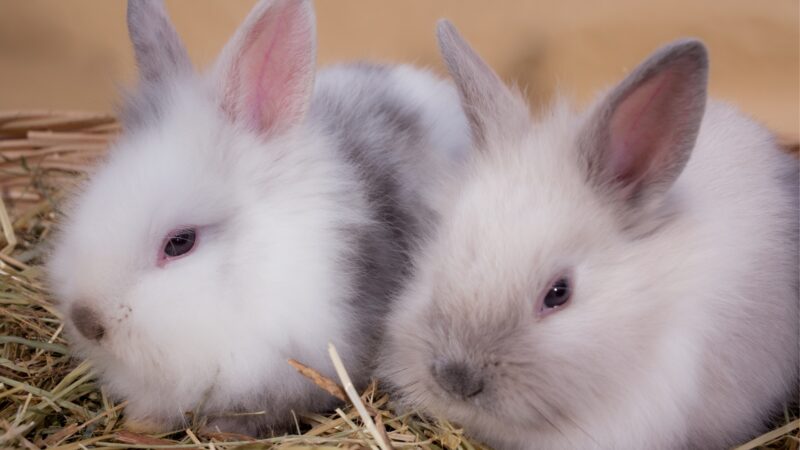
Dwarf rabbits require a significant amount of space to move around and play to stay healthy and happy. A good rule of thumb is to provide at least 12 square feet of living space per rabbit. This can be provided in a large indoor enclosure or an outdoor hutch.
In addition to providing enough space, it’s important to ensure that the living space is clean, dry, and free of drafts. Rabbits are sensitive to temperature changes, so it’s important to provide them with a warm, dry living space that is protected from the elements. While they can adapt to cold climates, it’s important to ensure that they have access to warm bedding and shelter.
Can Dwarf Rabbits Be Kept Indoors?
Dwarf rabbits can be kept indoors, but it’s important to provide them with a suitable living environment. Indoor rabbits should be housed in a large, well-ventilated area that is free of drafts and is kept at a consistent temperature between 60-70°F. They should also be provided with plenty of opportunities for exercise and play, such as a large playpen or supervised access to a rabbit-proofed room.
One anecdote about keeping dwarf rabbits indoors is that they can make great apartment pets due to their quiet nature and small size.
Frequently Asked Questions
Do Rabbits Get Attached to Their Owners?
While rabbits may not physically attach themselves to their owners like dogs do, they are known for forming strong bonds with their human companions. Rabbits can become very affectionate with their owners, often seeking out attention and cuddles.
Do Dwarf Rabbits Bite?
Like any animal, rabbits may bite if they feel threatened or frightened. However, rabbits are generally less likely to bite than cats or dogs and are known for being gentle and social animals.
Do Dwarf Bunnies Smell?
Dwarf rabbits, like any animal, can produce odors, but they are generally clean animals and do not have a strong odor. Compared to guinea pigs, rabbits produce less odor and require less frequent cage cleaning. However, proper cleaning and hygiene are still important for keeping your rabbit’s living space clean and comfortable.
